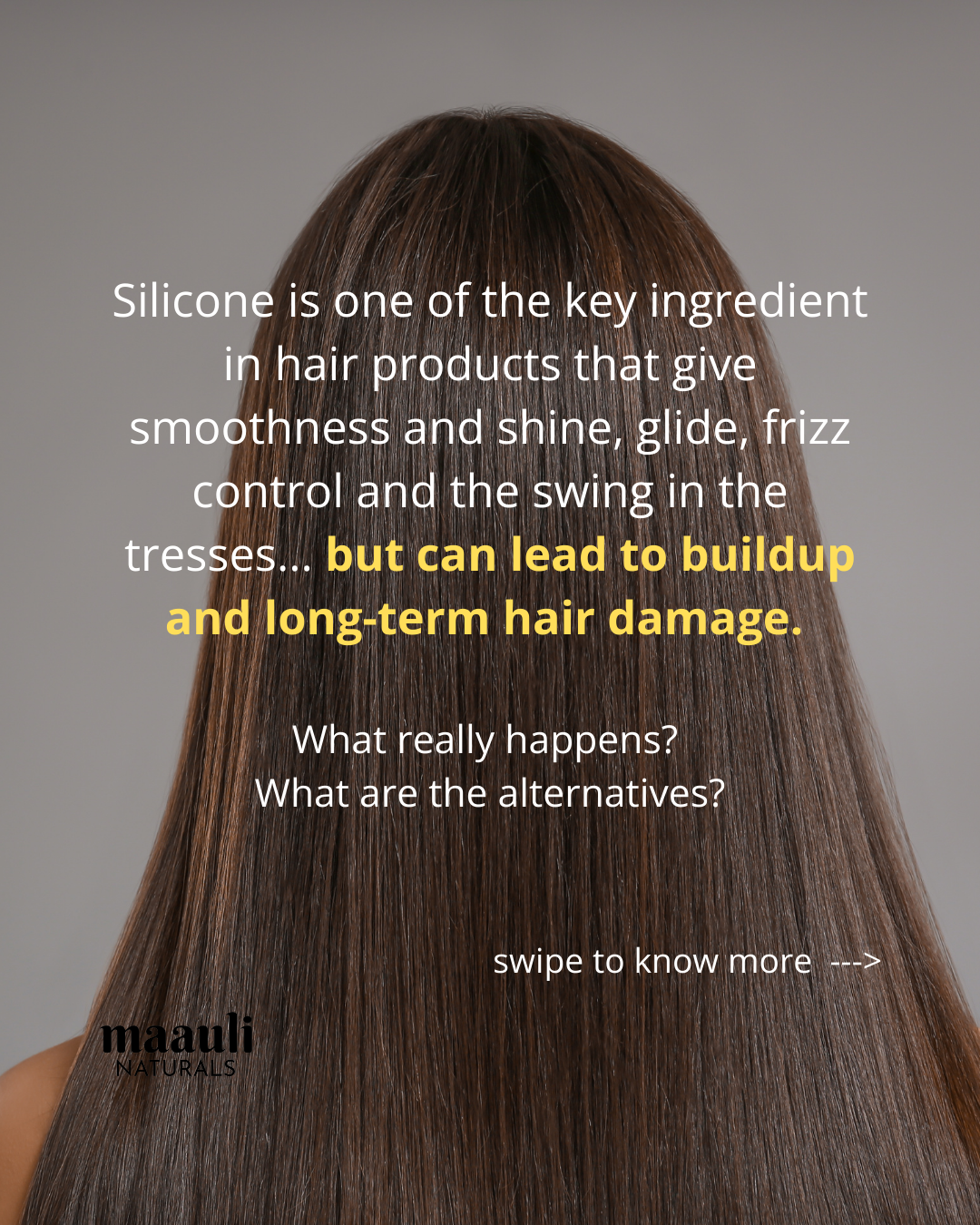Silicones are synthetic polymers commonly incorporated into hair care products for their ability to impart smoothness, enhance shine, and provide frizz control. They offer immediate aesthetic like providing glide, suppleness to hair enhancing its shine and leaving hair soft, color protection, heat protection, repair, reduced flyways, and deep conditioning. It is commercially used practically in every haircare product - shampoos, conditioners, hair serums, hair oils, hair masks etc.
Though it is generally considered safe and non-toxic with many positive benefits, concerns have been raised regarding their potential negative impacts on hair health. The effects of silicone in hair products vary depending on hair type. Coarser hair is less affected, while finer hair is more susceptible to damage. Though silicone itself isn’t harmful, improper rinsing can lead to buildup, weighing hair down and affecting overall hair health.
Furthermore, concerns have been raised about their toxicity and effects on the environment. Silicone originates from silicon, a natural material, but it is a non-biodegradable polymer with significant environmental drawbacks. Its production relies on hydrocarbons and generates high carbon emissions. Additionally, since silicone does not break down easily, it accumulates in the environment, particularly in oceans, posing long-term ecological concerns.
Product Buildup and Hair Weight: Non-water-soluble silicones, such as dimethicone, can accumulate on the hair shaft over time.
Moisture Retention Issues: The hydrophobic nature of certain silicones forms a seal around the hair shaft, which can lock out essential moisture.
Scalp Health Concerns: Accumulation of silicones on the scalp can trap dirt and oils, potentially leading to scalp irritation and discomfort.
Challenges in Removal: Non-soluble silicones require the use of clarifying shampoos containing strong surfactants for effective removal.
Fine hair, curly & coily hair suffers most from use of synthetic silicones.
Considerations for Specific Hair Types:
Fine or Thin Hair: More susceptible to being weighed down by silicone buildup, leading to a lack of volume and movement.
Curly or Coily Hair: Prone to dryness, which can be exacerbated by silicones preventing adequate moisture absorption.
Recommendations:
Identify Silicone Types: Distinguish between water-soluble and non-soluble silicones in product formulations. Water-soluble variants are generally easier to remove and less likely to cause buildup.
Regular Clarification: Incorporate clarifying shampoos periodically to prevent and address silicone buildup, ensuring the scalp and hair remain receptive to moisture and nutrients.
Alternative Ingredients: Consider products formulated with natural oils like argan, coconut, or jojoba, which can provide similar smoothing and shine-enhancing benefits without the potential drawbacks associated with silicones.
How to recognize silicones in my products?
Look for ingredients with suffixes such as:
-cone
-conal
-siloxane
-silane
@ Maauli: Pure, Silicone-Free Beauty & Health
We believe that effective, high-performing cosmetics can be created without compromising the health of your skin or the planet. That’s why all our formulations are completely silicone-free, relying on nature’s finest alternatives to nourish, protect, and enhance.
While silicones remain a debated ingredient, our philosophy is clear: we choose what’s best for both your beauty and the environment. Our products seamlessly blend innovation with sustainability—because true beauty should never come at a cost.
Email/Message us if you have any questions or clarifications. And yes, do share it with people who you know may be affected by it or interested in understanding what coats their hair!
Ta ta... until the next time!
